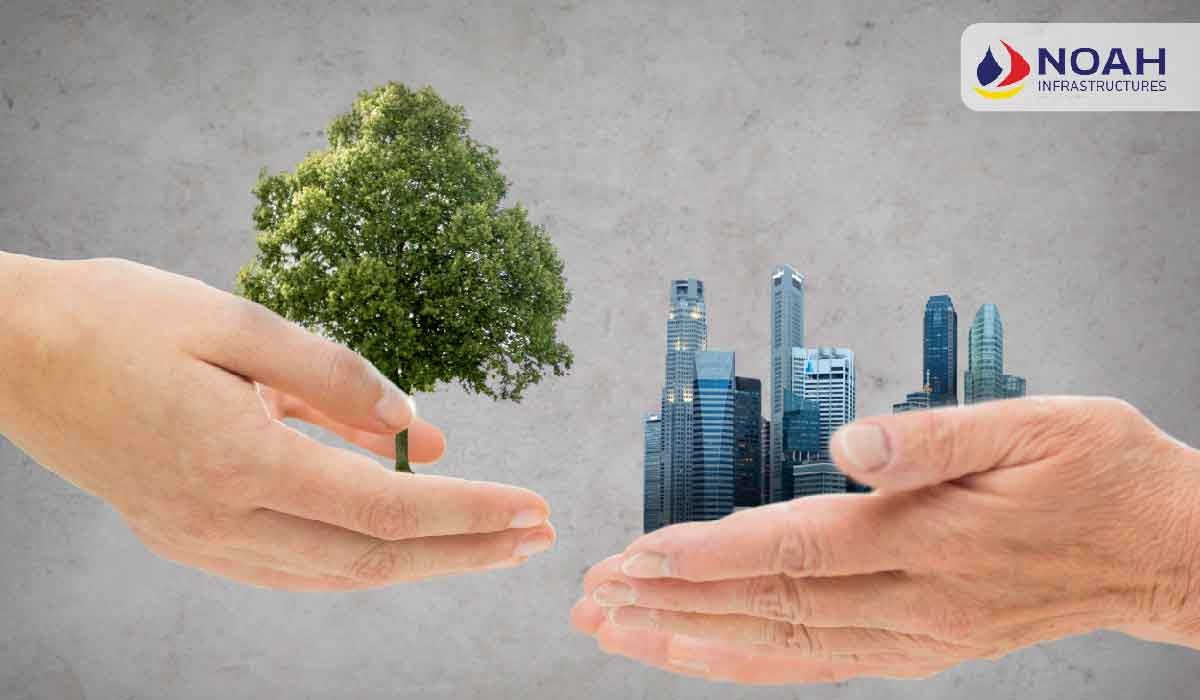The impact of construction on the environment: How to Mitigate
There is an intense impact of construction on environment due to construction activities. Activities may include from extraction of raw materials to the completed structures. We are facing
- Immense energy consumption
- Resource depletion
- Waste generation
- Habitat destruction contribute to climate change, pollution, and biodiversity loss
- Water scarcity
- Air and noise pollution
Due to the construction activities. Even the carbon footprint of construction materials further worsen the environmental consequences. But we have chances to mitigate these impacts. We can adopt sustainable construction practices and incorporating environmentally-friendly measures. This is possible to foster a more sustainable approach to building. Here we are going to see the impact of construction on environment. Additionally, we are concentrating on key strategies for minimizing these effects. Ultimately striving for a greener and more resilient built environment.
1. Energy consumption:
Construction seeks an amount of energy from extraction of raw materials on-site operations. But energy generation takes major role in greenhouse gas emissions and air pollution. This resulting climatic change and air quality issues.
2. Resource depletion:
The construction industry needs vast amounts of natural resources, including
- Timber
- Minerals
- Water
- Fossil fuels
Unsustainable extraction practices can deplete these resources, disturb ecosystems, and cause habitat destruction.
3. Waste generation:
Construction activities generate significant amounts of waste, including
- Construction debris
- Packaging materials
- Demolition waste
Improper waste management can lead to
- Pollution of soil, water bodies, and air
- Affecting local ecosystems and human health.
4. Land use and habitat loss:
Every construction projects seek for clearing land. Hence most of plants are being destructed. This tends to abolition of habitat of animals and birds and biodiversity. This disturbance can lead to the extinction of plants and animals. This results in disrupting ecosystem, ecological balance.
5. Water usage and pollution:
Construction projects need large amounts of water for various purposes like
- Mixing concrete
- Dust suppression
- Site cleaning.
More water consumption can strain local water sources. This will cause more difficult particularly in areas facing water scarcity. Moreover, construction activities can lead to water pollution through
- Sediment runoff
- Chemical spills
- Improper disposal of wastewater.
6. Air and noise pollution:
Construction sites generate
- Dust
- Particulate matter
- Emissions from vehicles and machinery
Contributing to air pollution. Additionally, construction activities often generate high levels of noise. This can impact the well-being of nearby residents and wildlife.
7. Climate change:
Construction materials, such as cement and steel, have a high carbon footprint. This is due to the energy-intensive processes involved in their production. The use of these materials in construction contributes to greenhouse gas emissions. This leads to climate change. Additionally, poor insulation and inefficient design can lead to increased energy consumption.
Mitigating these environmental impacts requires adopting sustainable construction practices, such as:
- Using environmental – friendly and recycled materials.
- Reducing energy usage by efficient design and the use of renewable energy sources.
- Implementing proper waste management strategies, including recycling and reusing materials
- Minimizing water usage through efficient systems and rainwater harvesting
- Protecting natural habitats and biodiversity through responsible site selection and design.
- Applying pollution control measures to mitigate air and noise pollution.
- Promoting sustainable transportation practices for construction activities.
- Incorporating climate-responsive design and energy-efficient technologies in buildings.
In conclusion, the impacts of construction on the environment are far-reaching and significant. The above mentioned construction activities pose considerable challenges to environmental sustainability. Yet, it is crucial to recognize that these impacts should decrease in environment.
Moreover, it is important to emphasize the importance of conducting thorough
- Environmental impact assessments
- Adhering to green building certifications and standards
- And promoting sustainable site development and land use planning
These measures ensure, construction projects are handle with a understanding of environmental impact. This also strive to cut impacts from the outset.
Noah Infrastructures,is the best civil construction company in Chennai. We provide enormous construction services to the clients. We are constructing the building keeping in mind the importance of environment. We try our best to save the environment without affecting the quality of the projects.

